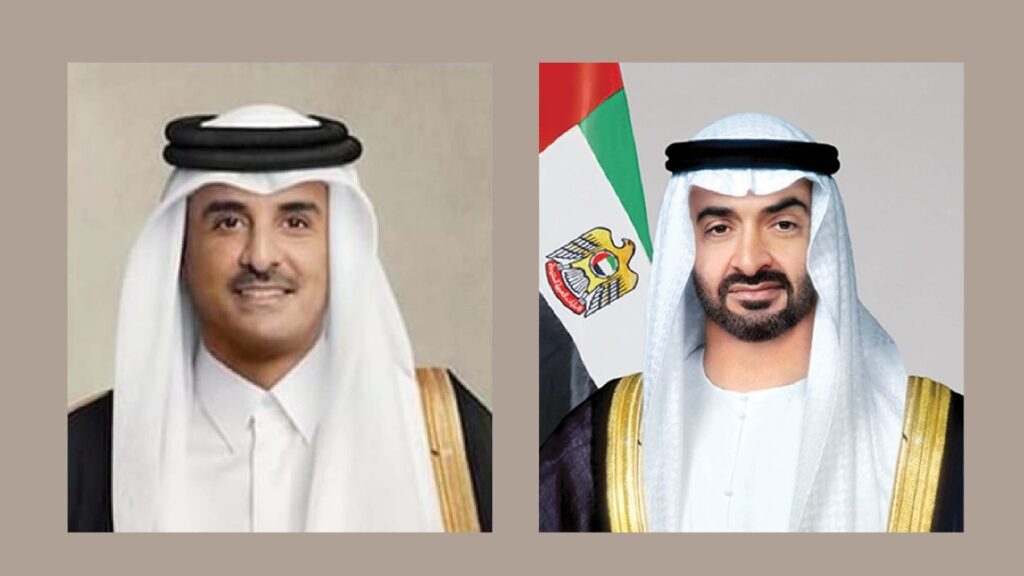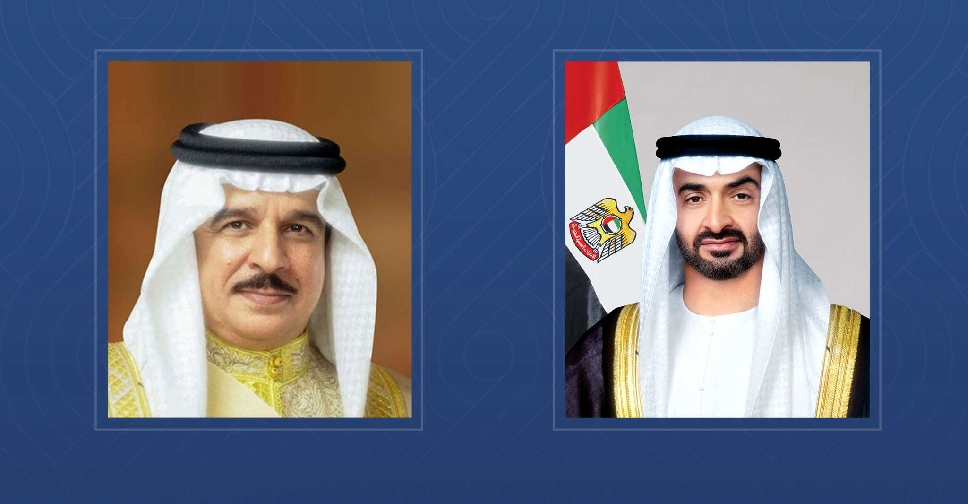UAE-Qatar Solidarity has become the focal point of attention in the Gulf region following a recent Israeli airstrike in Doha, Qatar. This unprecedented strike targeted Hamas leaders and officials in the Qatari capital, sending shockwaves across the Middle East and drawing the attention of the international community. In response, UAE President Sheikh Mohamed bin Zayed Al Nahyan swiftly visited Qatar to demonstrate unwavering support and reinforce the strong bonds between the two nations.
The attack, which occurred at a critical moment during ceasefire negotiations, has intensified regional tensions and highlighted the vulnerability of diplomatic efforts in the Middle East. With rising calls for collective action, the UAE’s response underscores its commitment to defending regional stability, sovereignty, and the principle of mutual cooperation among Gulf states.
The Israeli Airstrike in Doha: An Unexpected Attack
The airstrike in Doha marked an extraordinary escalation in the region. Targeting key Hamas officials, it came at a time when Qatar was actively involved in facilitating negotiations for peace and ceasefire in conflict zones. The attack not only resulted in significant casualties but also represented a clear violation of Qatari sovereignty, sparking outrage and condemnation across the Arab world.

The nature and timing of the attack have prompted a serious re-evaluation of diplomatic safety and the role of mediating nations. Qatar, which has long maintained a neutral stance as a mediator, suddenly found itself directly under assault. The consequences of such an attack extend beyond immediate losses, threatening the broader prospects of peace and stability in the region.
UAE’s Swift Response: Solidarity in Action
In response to this act, UAE President Sheikh Mohamed bin Zayed Al Nahyan moved quickly to affirm UAE-Qatar Solidarity. He openly condemned the Israeli strike as an infringement of international law and a challenge to regional peace. By visiting Doha personally, the UAE President sent a clear message that any violation against a Gulf nation would be met with firm political support and diplomatic solidarity.

Beyond words, the UAE also demonstrated its support through decisive actions, including policy decisions and diplomatic measures designed to isolate the aggressor and show unity with Qatar. This immediate reaction highlights the UAE’s role as a stabilizing force in the Gulf and its commitment to protecting the sovereignty and interests of its regional partners.
Strengthening Diplomatic Ties Between UAE and Qatar
The visit by the UAE President represents more than a symbolic gesture. It emphasizes the ongoing importance of strong diplomatic ties between the UAE and Qatar, which have seen periods of tension and reconciliation in recent years. The attack provided an opportunity for the two nations to reaffirm their shared goals of regional security, economic cooperation, and mutual respect.
During the visit, leaders discussed strategic measures to enhance security collaboration and ensure that future incidents of this nature do not destabilize the region. The UAE’s proactive engagement strengthens the position of Gulf nations as united actors on the global stage, capable of responding effectively to threats while maintaining a focus on diplomatic solutions.

Regional Implications: A Test for Gulf Unity
The Israeli airstrike has far-reaching implications for the stability of the Middle East. It exposes vulnerabilities in the diplomatic frameworks and raises concerns about the safety of mediators engaged in conflict resolution. Qatar’s role as a key negotiator in ceasefire talks between conflicting parties makes the attack especially concerning, as it risks undermining ongoing efforts to achieve lasting peace.
UAE-Qatar Solidarity sends a strong signal to other Gulf nations that unity is paramount in the face of external aggression. By standing together, the countries aim to create a regional deterrent against unilateral military actions that could escalate conflicts. This incident could serve as a catalyst for deeper collaboration among Gulf states in security, intelligence sharing, and crisis management.
International Reactions and the Call for Stability
Although the immediate focus has been on the UAE-Qatar response, the attack has also captured international attention. Nations across the globe are watching closely, recognizing that incidents of this nature could have ripple effects beyond the region. There is widespread concern that such actions could destabilize international peace initiatives and hinder humanitarian efforts in conflict zones.
The UAE’s stance highlights the importance of collective regional responses in maintaining stability. It sets a precedent for other nations to demonstrate solidarity with affected countries while encouraging dialogue over unilateral action. By emphasizing diplomacy and joint measures, the UAE and Qatar are showing that regional problems require cooperative, measured solutions rather than escalation.
Qatar’s Call for Regional Cooperation
In the wake of the airstrike, Qatar has emphasized the need for a united regional approach to ensure that acts of aggression do not undermine the sovereignty of any nation. By calling for cooperation among Gulf and Arab nations, Qatar is advocating for a strong, coordinated response that balances political, diplomatic, and security measures.
The call for regional unity aligns closely with UAE-Qatar Solidarity, reinforcing the importance of collective defense and shared responsibilities. These discussions have already sparked initiatives to organize forums and meetings aimed at strengthening cooperation, developing contingency plans, and preventing future incidents from destabilizing the Gulf region.
The Human Dimension: Impact on Civilians
While the geopolitical implications of the attack are significant, the human impact cannot be overlooked. Civilian lives were affected, and local communities faced uncertainty and fear in the aftermath. The UAE’s solidarity extends to humanitarian support as well, ensuring that affected families and communities receive assistance and protection.
The focus on human security complements broader regional security initiatives. By addressing both political and social dimensions, the UAE and Qatar are working together to build resilience within their populations, reinforcing the idea that solidarity is not just political but also humanitarian in nature.

The Path Forward: Diplomacy, Security, and Unity
Looking ahead, the UAE and Qatar are likely to pursue a multifaceted strategy to reinforce their positions in the region. This includes:
- Strengthening Diplomatic Channels: Continued high-level dialogues to ensure communication remains open and conflicts are resolved peacefully
- Enhancing Security Cooperation: Coordinated measures to prevent unauthorized military actions on Gulf soil
- Promoting Regional Unity: Engaging other Gulf and Arab nations in discussions about collective security and shared diplomatic protocols
- Supporting Humanitarian Efforts: Ensuring that civilians affected by conflicts receive necessary aid and protection
- Mediating Peace Processes: Preserving Qatar’s role as a neutral facilitator in ongoing ceasefire negotiations, thereby maintaining prospects for lasting peace
These initiatives underscore a commitment to comprehensive strategies that balance national security, regional stability, and humanitarian concerns. By adopting such measures, the UAE and Qatar demonstrate that solidarity is both a principle and a practical approach to overcoming challenges in the Middle East.
Conclusion: Solidarity as a Cornerstone of Gulf Stability
UAE-Qatar Solidarity has emerged as a defining feature of the Gulf’s response to unexpected challenges. The recent Israeli airstrike in Doha tested the resilience of regional partnerships and highlighted the necessity of unity among Gulf nations. UAE President Sheikh Mohamed bin Zayed Al Nahyan’s visit to Qatar exemplified decisive leadership, reinforcing the bonds between the two nations and sending a clear message to the region: any threat to sovereignty will be met with solidarity, diplomatic action, and measured response.
As tensions continue to unfold, the broader implications for regional stability, diplomacy, and security will remain critical. The collaborative approach adopted by the UAE and Qatar provides a blueprint for addressing conflicts, protecting civilians, and maintaining peace in a complex geopolitical environment. Through solidarity, shared responsibility, and a commitment to diplomacy, the Gulf nations demonstrate their capability to navigate crises while upholding principles of international law, human security, and regional cooperation.
In summary, the UAE’s affirmation of solidarity with Qatar after the Israeli attack is more than a diplomatic gesture—it is a testament to the power of unity, the importance of principled leadership, and the enduring commitment of Gulf nations to peace, security, and regional stability.
Do follow UAE Stories on Instagram
Read Next – Sharjah Sports Council Strengthens Cooperation with UAE Athletics Federation












